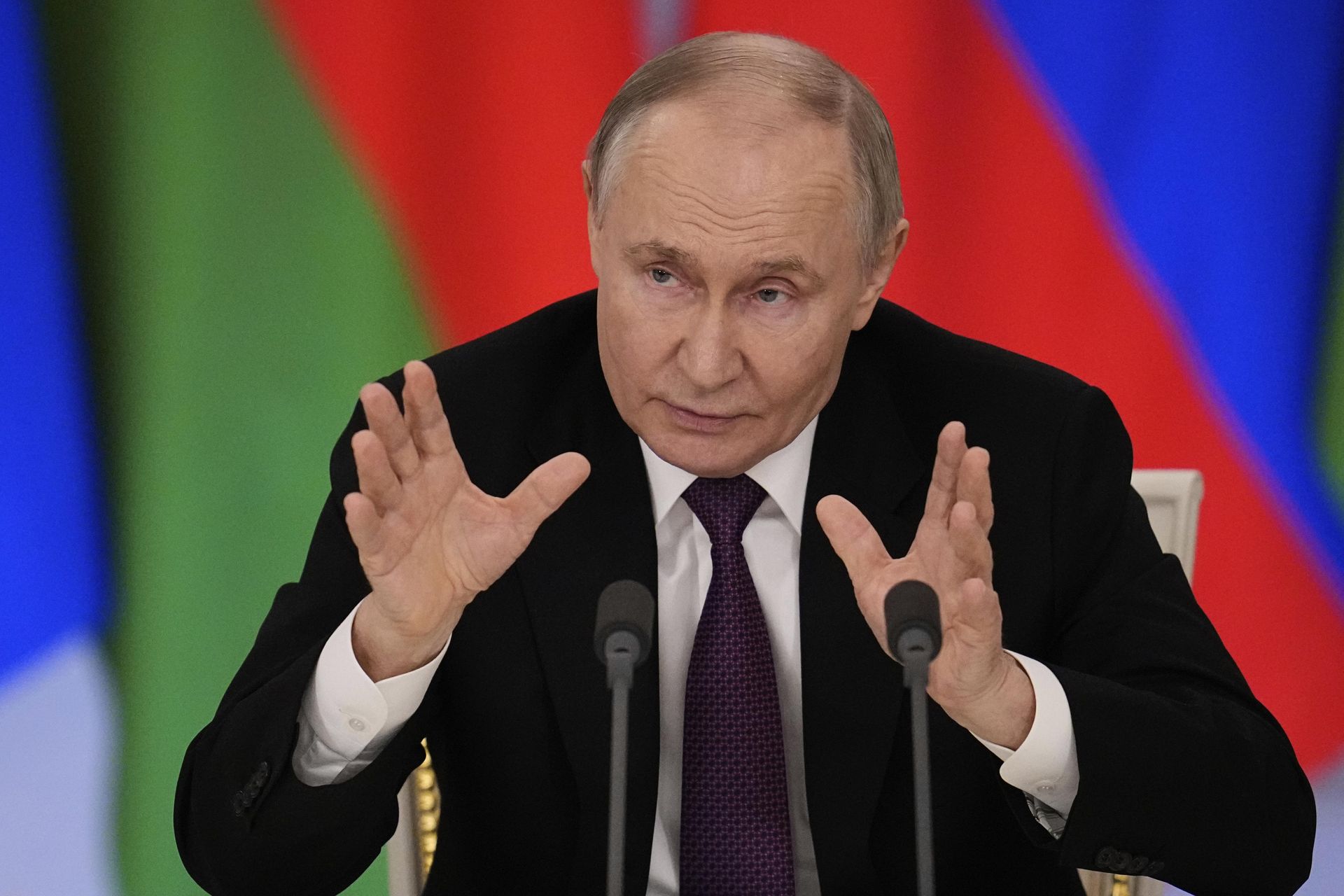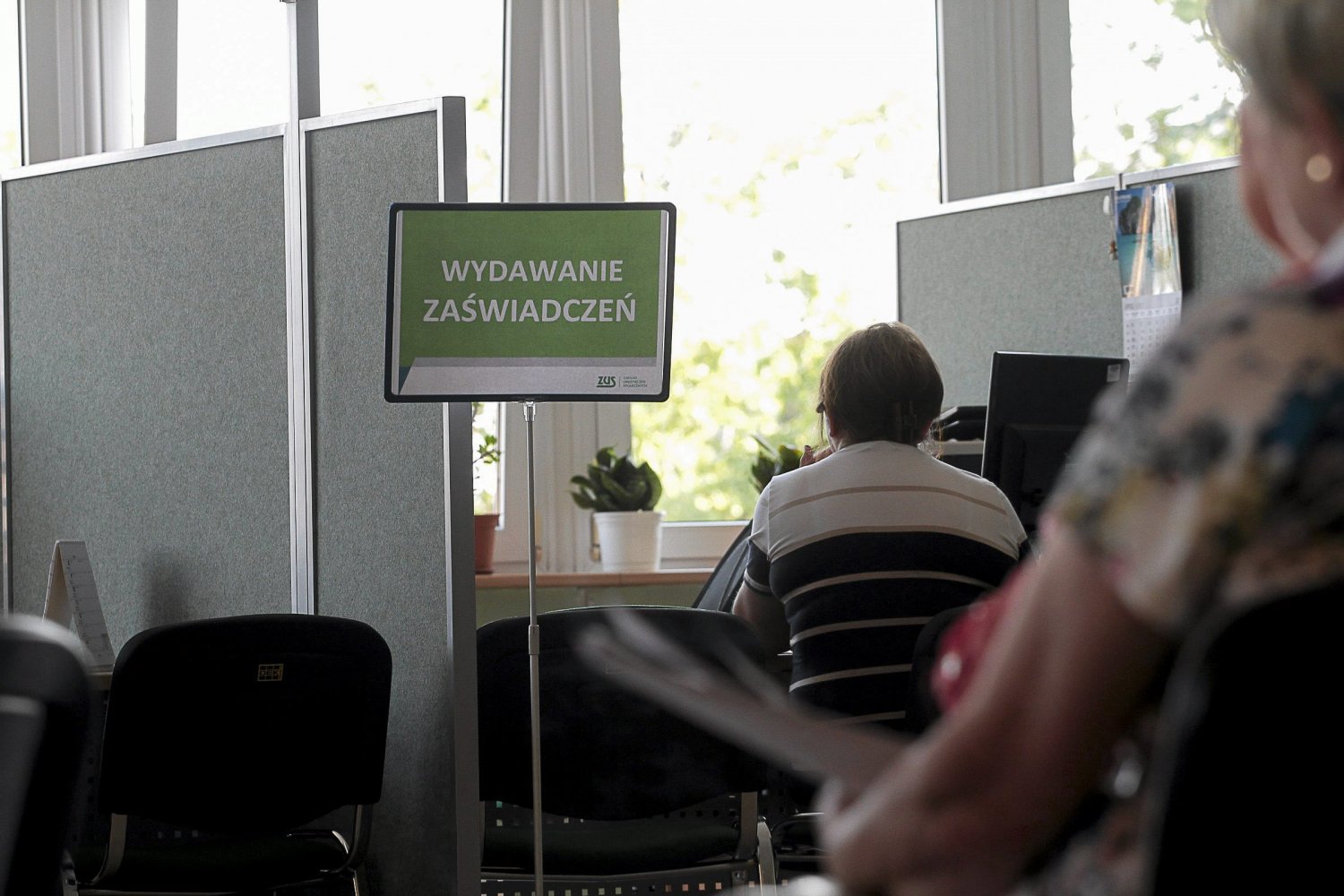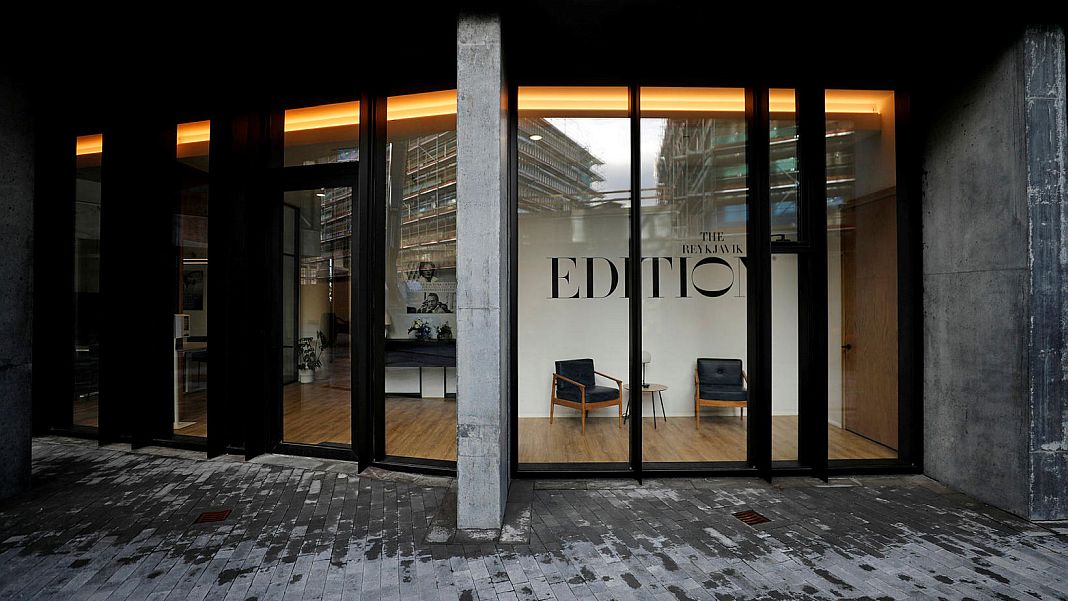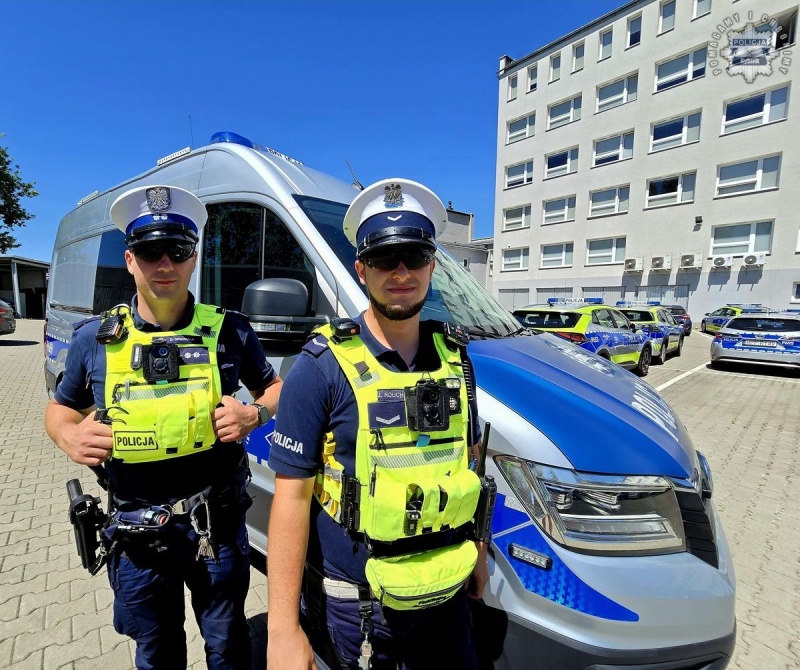“I saw with my own eyes” – Józef Mackiewicz's relation with Katyń
date:01 April 2022 Editor: Editorial
‘Frighten. One, two, 3 human bodies are already making a dense and overwhelming impression. Imagine their thousands, thousands, and all in the uniforms of Polish officers... The flower of intelligence, the knighthood of the Nation! They form layers deep, layers of human bodies 1 by one." [Józef Mackiewicz for “The regular Bishop” in 1943]

Most Poles know, for example, from television, what the Polish war cemetery in Katyń looks like, we associate black and white photos from the German chronicle showing open mass graves. However, let's effort to see Las Katyński, as he was immediately after the disclosure of the Crimes that Józef Mackiewicz preserved in his account.
On 10 April 1943, a plane with a Polish delegation to Katyń landed at the airport in Smolensk, which included, among others, the pre-war president of the PEN-Club Ferdinand Goetel, Edmund Seyfried – typical of the Main Care Council from Krakow, Dr. K. Orzechowski from the city infirmary in Warsaw, Dr. E. Grodzki – typical of the Polish Care Committee in Warsaw and the mill for the mill “Zieleniewski” in Kraków K. Prochnik.
On 11 April 1943, the German press agency “Transocean” will inform the planet about the discovery of mass graves of Polish officers in the Katyn forest. https://jejeje.pl/updates/calendar-catinian
But it is in mid-May 1943 that the most celebrated investigator – Józef Mackiewicz – will arrive in Katyń.
This is how Mackiewicz recounts the site of the Katyń Crime to Vilnius reporter “The regular Bishop”: “Fearful. One, two, 3 human bodies are already making a dense and overwhelming impression. Imagine their thousands, thousands, and all in the uniforms of Polish officers... The flower of intelligence, the knighthood of the Nation! They make layers deep, layers of human bodies 1 on another. At this terrible moment, I have a terrible comparison of them to a large chest of sardines. They are arranged like sardines, interleaved with each other's legs, it is the head, pressed, flattened in the body of juice, which, at the bottom of any pits, fades in the form of green, dead liquid, not reflecting either the tops of trees or clouds in the sky. We bare our heads and stood still, any birds chirping on the pine. The rain has just stopped, the blessed wind has driven off the other side of the grave intoxicating itself. And even for a moment, the sun looked out. It was a minute that I would never forget, due to the fact that the rays of that sun fell and flashed abruptly on the golden tooth of individual there, deep down, in half open mouth. I tilted my head to change the angle of reflection and not to look at those sunny things. At times like this, life itself seems to be cynicism. Spring over the bottom of each other's hands, legs, crooked faces, clenched hair, officer's shoes, crusty uniforms, belts. To think that each of these positions lying, curving of the knee, the head recoil was the last reaction of the highest pain, despair, fear, pain...do I know what the worst feelings of people.”
“The ground of the forest here looks ugly. It just looks like, say, a suburban chick abandoned by mayo and sleazy hikers who break up under trees on Sunday and then leave behind waste, butts, papers, garbage. There are dog tags increasing between these garbage in Katyn. At a closer look, we become chained to an extraordinary view. They are not garbage. Eighty percent of them are money. Polish paper gold banknotes, mostly higher emissions. There are any in packs of 1 hundred, 50 zlotys, twenty. They're one-on-one and a small bit more of a wartime issue of two-golds, in 1 case, I saw reds. The faded, oblique, soaked with a dead odor and a liquid of corpses. Right next to the wooden cigars, cigarettes, shreds of russian newspapers, eagle buttons, gloves, pieces of uniforms, handkerchiefs, leather purses... All of these are things extracted from graves. This is not due to disregard or deficiency of conscientiousness on the part of the Polish Red Cross Committee working here, which, on the contrary, as I will proceed to say, is working with full self-denial and dedication to identify the murdered and preserve the remaining memorabilia. This is due to the fact that the murdered thousands of victims were thrown to terrible pits, including all their individual life ballast of regular life. There's quite a few what all man carries around and stuffs his pockets in life erstwhile it seems crucial to him. But after death, only any things are important.”
On the basis of the letters, russian newspapers, coins and items produced by prisoners of war, Mackiewicz states: “I personally have no doubt, no absolute uncertainty that they were murdered by Bolsheviks. I discovered myself at the Katyn crime scene.”
http://loujpi.edu.pl/subjects/history/materials_edu/library/crime_catynska_2.pdf
Józef Mackiewicz, in his work, was constantly returning to the subject of Katyń - he wrote anonymously “The Katyń Crime in the light of documents” https://pl.wikipedia.org/wiki/Zbrodnia_katy%C5%84ska_w_%C5%9Bwietle_document%C3%B3w, which was discussed by General Władysław Anders. Under his own name, he besides wrote “Dies over Katyn” and “Cathin—crime without trial and punishment”. He considered the mystery of the death of Ivan Kriwożercov, 1 of the most crucial witnesses of the Katyn Crime, who was to hang himself on 30 October 1947 in England. https://jozefmackiewicz.com/mysterious-death-iwana-kriwożercow-head-witness-criminal-cathinsk-jozef-mackiewicz/
Poland Mackiewicz
Mackiewicz was a Vilnius resident of the city where Poles, Lithuanians, Russians, Jews lived. He was raised in a planet which the surviving Kozielska prisoner Stanislaw Swianiewicz called the “Great Duchy of Lithuania”. The end of the existence of this “Great Duchy of Lithuania” in the life of Poland laid down the 1939 Defence War. Swianiewicz, in his memoirs, described the consequences of losing the war: “What dies is not Poland, but the way of many of us the tradition of the Grand Duchy of Lithuania in the life of Poland. This tradition was the moral work of the reborn Poland to the east parts of the erstwhile Republic of Both Nations." [Stanisław Swianiewicz “In the shadow of Katynia. Warsaw 2010 p. 68].
Raised in culture of this principality Mackiewicz proposed that the deadly threat to the civilized planet from Bolshevikism be balanced by a transnational anti-communist crusade. According to German propaganda, Wehrmacht was to carry out specified a crusade, with the participation of the east collaboration formations of the alleged Ostlegions.
Mackiewicz writes a lot and positively about Ostlegionists who are devoted to the fresh "Contra", a sketch of "The Crime in the Drawa River Valley" https://jozefmackiewicz.com/scribe-in-dolina-reki-drawy-jozef-mackiewicz" , which populates the cards of his fresh "Do not request to talk loudly" where we meet Basil Zacharov, leader of the village of anti-communist old-timers (a part of Orthodoxy), or in love with beautiful Polce, Dorothy, Georgian sotnik Cossacky Sylamikiel.
On the another hand, in the same fresh we read comments from German officers about east collaboration formations suppressing The Warsaw Uprising: « east wilderness» continued to insist on General Reinefarth. «You can believe Untermensch's theory» noted General Erich von dem Bach-Zalewski. “These are Ukrainians” said Poles. In any case, the Kamiński brigade did not go in ruins – she demanded reinforcements. Poles defended all break of the wall. Von dem Bach, who commanded all the forces fighting the uprising, decided to negotiate. But without the prior withdrawal of this “hoard” of negotiations there could be no speech.”
The veracity of even the heaviest charges against members of the collaboration formations is confirmed by many reports of survivors from the Warsaw Uprising of civilians.
Wondering whether Mackiewicz's thought to build a "white" coalition of east European states against Bolshevikism had a chance of success, it should be compared with convincing him contemporary. For example, Marshal Piłsudski considered white Russia to be as dangerous to Poland as red, while white general Anton Denikin was willing to recognise the east border of Poland only on the border of the Congressional Kingdom.
When assessing the prospects for the implementation of the thought of a transnational fight against Bolshevikism, it is besides crucial to take into account the experiences of planet War II, which showed that only Poles built the Underground State among the nations surviving in the Second Republic, while another nations collaborated with the occupiers creating puppet governments, military units and even police specified as the Lithuanian Sauguma.
The deficiency of interest of national minorities in the existence of the Second Republic and their marginal participation in its defence 1939 was presented by Albin Głowacki in the survey entitled "National and cultural structure of Polish prisoners of war in the camps of the NKVD 1939-1941" "Łambinowicki Museum Review 1997 No. 20 pp. 51-73 quoted by Witold Wasilewski: "According to the summary of the end of February, in camps in Kozelsk, Starobielsk and Ostashków there were 14 466 prisoners of war and officers (of officers and officers), of which: 98.1% (14 188 people), Jews 1.1% (160), Belarusians 0.4% (51), Ukrainians 0.2% (33), Germans 0.1% (16), Lithuanians 0.1% and officers (of officers and serial officers), in addition to 3 Czechs, 2 Russians and after 1 Bulgarian, Georgians, Latvians and Hungarians" https://stopekhistorya.pl/pa2/tyfik/piel-80s. The number of 98.1% of Poles among victims of the Katyń Crime should be referred to the fact that according to the census of 1931 Poles constituted only 68.9% of the inhabitants of the Second Polish Republic.
The task to make a common vigor of different nationalities against the Bolshevik threat was so already unrealistic in the pre-war years, as the population of Central and east Europe was more curious in building their own sovereign national states and fighting for their borders than in averting the Bolshevik danger.
An antidote to Bolshevikism
The main consequence of communism pointed out by Mackiewicz in “The Way to Nowhere” was the paralysis of the will of all who must endure russian power. This paralysis of the will is seen in the description made by the NKVD [Author consistently: NKGB – B.L.] of the deportation: “On Saturday, June 14, 1941, as he walked down the streets of the same city, it was a bright, sunny day and the deportation action begun by the NKGB authorities at dawn was inactive in full progress. The flat russian production trucks stood alone and ranks in front of the tenement complexes or drove in different directions. Brano not homeless vagrants, but on the contrary: people mostly long-established; they were taken to prisons, executioners, camps, to exiles or death, and no redemption, for any money, could enter into account; not a fewer or a dozen, but immediately thousands; they were taken openly, in front of the full city. Brano's not dogs! On the contrary, people were taken... And here no 1 protested, no screamed, no quarreling, no defending, no liberating, no beating with fists. No one's even complaining. The city from the higher order was not to interrupt the regular work and the people who remained, or did not know whether they would stay tomorrow, walked rapidly along the sidewalk without stopping, turning their eyes. There was peace and quiet.’ https://www.pogon.lt/58-ksiegarnia-biblioteka/jozef-mackiewicz/21-doga-donikad-02.html
In “Nudis verbis” Mackiewicz has already warned straight about the communist paralysis of the will: “The “radical” of Poland, not only in its russian form and external borders, but in its interior content, the terrible spectrum of the paralyzed Bolshevik nation stands on the doorstep.” https://jozefmackiewicz.com/nudis-verbis-jozef-mackiewicz/
The first, ad hoc drug for communism was tried by Mackiewicz himself, who, in his book “Cathin Crime Without Court and Punishment”, recalls: “In the russian occupation, I changed my profession of writer and author to more appropriate conditions – namely, I became a truckman.”
http://loujpi.edu.pl/subjects/history/materials_edu/library/crime_catynska_ 1.pdf
This medicine is simply a deficiency of collaboration with communism. This method not only protects the conscience, but besides from engaging in building the russian regime, limited contact with propaganda or possible confiscators to a minimum.
A more extremist cure for communism is proposed on the pages “Road to Nowhere” Tadeusz – the founder of a conspiracy anti-communist organization:
"What a discussion erstwhile everything is upside down. Words have the other or none. Take distant the first sense of words from people, and you will receive the degree of intellectual paralysis we are witnessing today. This is as superb in its simplicity as God did erstwhile he wanted to paralyze the action of rebellious people building the Tower of Babel: he confused their languages.
- I'm sorry. So what do you think is the way to break this collective paralysis caused by the hypnosis of lies?
- I'm sorry. Anyway, you can't look for him on the polemic road. The very fact of polemics draws us into orbit and carries us into the plane of Bolshevik absurdity.
- I'm sorry. Then what? Tell me.
- I'm sorry. You should look for it on the road of equally simple intellectual reflexes: shoot!
- I'm sorry. What do you mean, shoot? To whom?
- Just plain. Just like that. To Bolsheviks.”
Especially in our time, erstwhile contact with media and propaganda is, for method reasons, many times more frequent than in 1939-41, the deficiency of seeking to break collective paralysis on the way of polemics with lies seems necessary.
The extremist cure for Bolshevikism, indicated by Tadeusz, is besides the individual courage and unpredictability of action, more in the sphere of deeds than in words. The perfect hero, capable of applicable implementation of Mackiewicz's prescription was:
Sergei Piasecki
This is how Mackiewicz describes him: “At this moment, behind their backs, almost silently, he emerged from a side path, Sergius Piasecki. He was not tall, and at first glance he seemed so thin. He was dressed, despite the heat, in the old rainwater anno 1925, from which long tubes of unpressurised trousers ran down. He kept his hands in the rainstorm's pockets. He looked poor, but not conspicuous. He never made himself known unless he had an ascetic face and a dark, stinging look in it. possibly this is what the thought terrorists of the 19th century looked like (...)”
https://jozefmackiewicz.com/wp-content/uploads/2021/05/download-text-in-pdf.pdf
The life communicative of Sergius Piasecki could be a storyline of the novel. Piasecki is successively a Polish interviewer in the rear of the Red Army, a smuggler, a drug addict, is sentenced to death for armed robbery, pardoned, during his fifteen-year stay in a dense prison on the Holy Cross he writes his memories, which inspire the admiration of Melchior Wańkowicz. Shortly before the outbreak of the war Piasecki regains freedom and, erstwhile the business comes, remains (thanks to the fame he gained by describing his memories in an interview) the head of the Vilnius execution – executes death sentences on collaborators and German soldiers. After the war, he escapes from communist Poland and settles in England, where he writes, among others, anti-Soviet satiries “Registers of the Red Army Officer” and “7 pills of Lucifer”.
Piasecki besides made a decision, as head of the Vilnius Executiv, to waive the execution of the death conviction issued by the underground court on Mackiewicz for alleged collaboration with Germany, which he explained in 1946 in Rome: “In defence of Mackiewicz, there were definitely many members of the Organization. Among others: ‘Michael’, Zygmunt Andrushkiewicz, ‘Roman’. It has been proven that 1 of Mackiewicz's accusers was ‘red’ and collaborated in the Bolshevik writing. There was a letter from Mackiewicz to the Secret Court that I read. The letter was indignant. He gave convincing data on the absurdity of the sentence, etc. I remember that Mackiewicz pointed out that these were intrigues of his political opponents from the Bolshevik camp. That he does not intend to hide from the sentence, nor to defend himself by authority of the authorities, that he is Polish and Polish patriot. All his responsibility is the hatred of the Bolsheviks and bright appearances against them. But he never acted against the Polish nation."
html
England
Mackiewicz spares no words of criticism to the Western Aliants and with the mouths of the Belarusian prof. states: “Hitler changed Cultureturtrager’s to Uebermeschentum’ostwo. Germany is in this position nouveau riche and so behave rudely. And the Englishman has always been Uebermensch, he is born with this sense of superiority, he is not a noveau riche and so acts like a well-bred gentleman. A man who doesn't want to know about things that bore him. He to any Ukrainian or Belarusian is not ill-mannered, nor well. They're not curious in him with all their heart. No problems!”
https://jozefmackiewicz.com/wp-content/uploads/2021/05/download-text-in-pdf.pdf
The alignment of the English with Germany seems, shortly after the end of the war, a very dense charge. However, it must be remembered that Mackiewicz published his book in 1955, erstwhile the betrayal of Western Allies towards Poland was already certain.
Also, Józef Czapski, who in his letter to Janusz K. Zawodny dated 15 March 1975, was not disappointed by the attitude of the Western Allies towards the Katyń Crime, "Naturally, I don't know how to thank you for quoting my books or giving specified a message with specified attention and clarity – and as far as the ban on calling Katyń in my American speech is concerned, unfortunately I don't remember it almost at all. erstwhile I wrote a letter to you, I remembered: I guess no 1 has yet traced you, on facts, not only shamefully cynical tactics of Roosevelt, but inactive the destiny of our reports lost, buried. For Roosevelt, apart from Miss Harriman, you can see no evidence was credible!!!!(...)" [Janusz K. Zawróże “Katyń” Paris 1989 p. 300]
Disappointment of England is besides seen in Marian Hemar's poem entitled “The Right State”:
“When in Katyn the earth was brought to light
I measurement dead bodies – beaten, dumped bodies...
How eagerly our politicians were,
Real Democrats, sober Anglophiles,
Not to talk about any grave...
In order not to spoil English street humor...
To avoid rape from 1 Katyn...
Because Mr. Goebbels about Katyn russian fall—
So how do we Democrats support Goebbels?
How – behind Goebbels – to accuse Russia before the world?
How can we have England before specified a dilemma?
To spoil Churchill? To tease Mr. Welles?
And who will write: “Poles of fascists!
They're basing Goebbels on common hatred
To the russian paradise... hand washes away" ...
How will the Polish politician last this charge?
So sober, political, real and nice.
They did that just – we know how they did.”
National Army
Although Józef Mackiewicz obtained approval from Polish underground authorities before his journey to Katyń, he repeatedly criticized the National Army in his work. Mackiewicz's main allegations towards the National Army are to submit to the interests of English and deficiency of education in society of opposition to Soviets.
With the mouths of a longtime intelligence officer Romuald Lawrynowicz Mackiewicz warns in “No request to talk Loud” against uncritical support, during the war, of the interests of our allies. Lavrynovich orate of an envoy of the Home Army coming from Warsaw: “I had in my hand your «Sztabowy Bulletin», as you call it. They say it's only 30 copies. It is very right that you only let it to be read “for service” It is based on the situation assessment of politicians and military ....English. The full impression is English writing “for Poles” and not Polish writing.”
https://jozefmackiewicz.com/wp-content/uploads/2021/05/download-text-in-pdf.pdf
This accusation is repeated in "Nudis verbis": "In contrast to the position of «Lviv and Vilnius» and most of the emigration press, I consider the biggest responsibility of our underground leaders not the failure of human and material goods during the anti-German opposition period, the Warsaw I own, a different court, and – complete, perfect almost moral disarmament towards the russian invader."
https://jozefmackiewicz.com/nudis-verbis-jozef-mackiewicz/
Readers of Józef Mackiewicz should ask themselves a akin question today: Are the current right-wing media not subject to the same disadvantage as the "Staff Bulletin" - do they not put abroad interests ahead of Polish interests?
Soviet everyday life
Dominika Różik in “Józef Mackiewicz as a witness to the exhumation of graves in Katyń” is absolutely right, stating: “His main interests were centered around ordinary, simple bread eaters, simple, simple forgotten matters.” And so the reader of Mackiewicz’s “Road to Nowhere” truly feels touching the average locality Rada fear of false accusation by the NKVD, expects along with the heroes to exile to Siberia, fingers his fingers for the prosperity of the pedestrian escape of the carpenter, Antoni Rymaszewski from the Soviets. The striking thing about Mackiewicz's work is that, contrary to communist propaganda, the victims of the russian apparatus of repression are average residents of Kresów – Paul, who during the russian business is simply a furman of a car, kulak Jan Chont, or carpenter Rymaszewski. The repression is not even the consequence of their anti-Soviet activities, but of a plan set by the russian authorities, absurd and unknown.
The writer, on the example of his fictional heroes, recalls well-known facts specified as the death of millions of people, the collectivization of villages in the USSR or the forced collectivization of Polish villages between 1948 and 1952. People whose destiny was indifferent to the theorists of human happiness like Lenin or Stalin.
Exegi monument
Although Józef Mackiewicz summed up his life and the destiny of his journalistics, a bit like Adam Mickiewicz in “Weak Tears...”:
"I didn't win. Those who organize the "instinct of the nation" won. I lost to the moles. So delight indulge me.”
Mackiewicz cannot be regarded as a loser and this is not about the award of Mackiewicz the Order of Polonia Restitut by the president of the Republic of Poland in August Zalewski's exile, about the application by the University of Kansas to the Nobel Literary Prize, nor about the fact that the Polish Sejm announced the year 2022 by Józef Mackiewicz. He received a larger laurel from all these printers, colporteurs, through whom his books were published in the second circulation. His tribute was besides given to Nina Karsov-Shechter, who, in gaining the copyright for his works, banned for years, against the will of his daughter Joseph Halina Mackiewicz their publication
https://www.radiomarija.pl/bez-categories/karsov-shechter-still-blocking-mackiewicz/
Finally, he paid tribute to Mackiewicz, who unfortunately died this year, prof. Jacek Trznadel, who, without the approval of Nina Karsov-Szechter, decided to print the book “Cathin – a crime without trial and punishment”.
Currently, Joseph Mackiewicz's works are not censored: they are available in bookstores, libraries or the Internet. You gotta read them to see the planet through his eyes. Although Communism has died, it may be worth seeing if we have a mask in our home yet.
B.L.
photo arch.- . on the site of the exhumation in Katyń - Józef Mackiewicz (in the middle, in a bright coat) reviews newspapers and papers extracted from the pockets of the murdered on the site of the exhumation in Katyń Józef Mackiewicz reviews newspapers and papers of the murdered
Józef Mackiewicz (1902–1985) is simply a Polish author and journalist. In May 1943, after the Germans discovered the graves of Polish officers murdered by the Soviets at the invitation of German and with the approval of Polish underground authorities, he went to Katyń as a witness to the exhumation of Polish officers. After returning to Daily Bishop There was an interview with Józef Mackiewicz entitled “I saw with my own eyes” in which he reported his stay at the place of execution of Polish officers.














